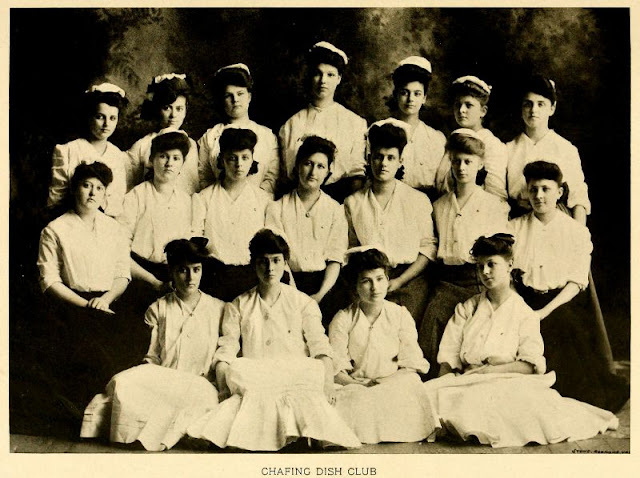A Member of the Club
Another one gone. Another law that was trying to help people. We knew that they were going to do it. We expected it.
Nevertheless.
When I read the headline about the Supreme Court’s decision on affirmative action, I didn’t gasp out loud the way I did when I read the headline about their decision on Roe vs. Wade. I did let out a sad breath of air and stare out the window for a while. The fact is, I’ve grown numb to Supreme Court decisions that I consider disasters. They’re starting to come so quickly, they blend into one another.
When I did finally come to my senses, my first concrete thought was, “Thank God.” Thank God SHE got through before this happened. Thank God SHE had her degree from a selective college and a second degree from a university even more selective than that. Thank God SHE now had the kind of job that these degrees allowed her to compete for.
On a level playing field.
“Are you going to be the diversity again?” I asked when she called and told me that she had been offered a position at a well-regarded therapy practice in Lower Manhattan.
“I am,” she laughed.
But when I went online and read the biographies of the other therapists, I understood that though she might be providing the racial diversity, as far as her education went, she was the same as everyone else. They all had a Masters in Social Work from either New York University or Columbia. She was a member of the club.
Let’s talk about how she managed to join that club. Let’s talk about affirmative action.
I’ve read that a majority of Americans supported the decision to scrap it. The majority of Americans felt it wasn’t fair to give one group an advantage over another because of the color of their skin. I’m sure that every beneficiary of affirmative action would agree with that statement. I agree with it.
But it’s one thing to suddenly be all for a “level playing field” on the day that the college applicants submit their applications, and it’s quite another thing to conveniently ignore the fact that the playing field was anything but level up to that moment.
I think a lot of people who believe affirmative action is unfair have only ever heard the catch phrases, and if they were made aware of some of the real and concrete ways students of color do not compete on level playing fields prior to applying for college, they might think differently about it. So let’s take a concrete example. Let’s talk numbers.
In my high school, we had a “normal” math program. I completed Algebra I, Geometry, Algebra II, Trigonometry, and Analytical Geometry whereupon I sat my father down and asked him if I could give the AP math course, Calculus, a miss. Would it be all right if I doubled up on my literature courses instead? He knew I wasn’t a “math person.” My father agreed to this, but I could have taken Calculus if I’d wanted to. It was an option.
In her high school, she got as far as Algebra II. That is to say, she got to Algebra II, but the Algebra II teacher didn’t. The year she was supposed to take it, the teacher quit and the school was unable to fill the position, so she had substitutes all year, substitutes who might or might not have been “math people,” who in an inner city high school struggled to keep order and often let the children play. There would be no Trig or Analytical Geometry or Calculus. When she was a senior, the math class for the advanced students had only two students in it, two students who’d never had Algebra II.
I sat the Math SAT with three years of math taught by qualified teachers. She sat the Math SAT with predictable results.
Yet a selective college still accepted her. They accepted her to study science. They saw what I saw, a girl who was determined to succeed, a girl who took the hardest courses her high school offered even if they didn’t compare to the hardest courses somewhere else, a girl who had gone from non-English speaking to salutatorian of her high school class in just eleven years. How big a part did affirmative action play in the college’s decision to accept her? Neither she nor I will ever know, but that it did play a part, we both believe.
They took a chance on her. They acknowledged the playing field had not been level. Affirmative action allowed them to do this.
Her lack of math was just one of many examples of how things weren’t equal for her. I think the majority of people who think affirmative action isn’t fair wouldn’t think graduating high school with only Algebra I was fair either. Maybe more concrete examples need to be given in the court of public opinion. Maybe speaking in abstractions isn’t the way to go.
So what are colleges and universities going to do now? I’ve heard different plans. I’ve heard of adversity scoring and of class-based admissions. I have to admit that I’ve been a fan of class-based admissions since it would obviously bring in many students who were helped by affirmative action. Though I also remember a conversation I had some years ago with an African-American senior at Connecticut College. When I suggested that using class as a criterion for admission might also solve the problem for people of color, she shook her head. She didn’t trust it. “If they say they’re looking to recruit working class kids into their selective colleges and universities, they’ll just go down the road to the white high schools to get them.” How sad that she was so sure about this. Was she just being negative? I don’t think so. Her opinion seemed based upon her experience of the system she had moved through.
Would colleges and universities really skip over the black working class or inner city high schools to go to the white ones? Some schools might, but would they all? I can’t believe it.
But all of that is still to be seen. For the moment many schools are floundering. The students starting next month and in September had already been accepted when the ruling came down, but this year’s applicants will bear the brunt of the new reality. It seems inevitable that acceptances for students of color will dip until the colleges and universities come up with a different system. Maybe the adversity model is the better way to go. Only time will tell.
Did the school who gave a nod to her application despite her math deficit regret their decision? I don’t think so. She did well in her courses there and was an active participant in campus life. When the phone call came telling me she’d gotten into an Ivy League school to do her Masters, we were both tearful and grateful for the chance she’d been given.
WALSH SCHOOL GOES IVY LEAGUE! I posted in jubilation on my Facebook page, but to certain friends who had helped me support her through the years, I sent only a one-word message.
VICTORY.
Victory for her. Victory for her family. Victory for fairness. Victory for affirmative action. Victory for the society that now has a well-trained, well-educated professional earning a decent living and not another tired inner city mom working a job she doesn’t like.
Victory for us all.






Excellent points presented. The field has never been level for inner city students.